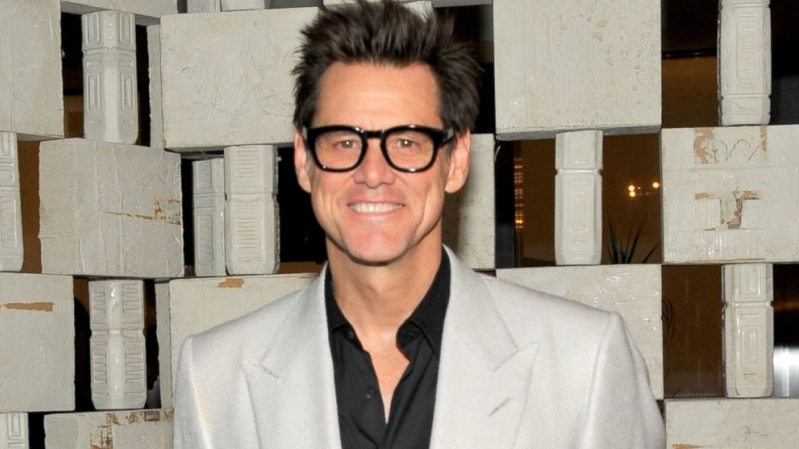
Comedian Jim Carrey has slammed a California law signed by Gov. Jerry Brown on Tuesday that tightened vaccination requirements for children. However, some Christians have expressed support for the new law.
Carrey went on a tirade on Twitter slamming the California governor, describing him as a "corporate fascist." He thought that vaccines contained dangerous chemicals that could negatively impact children.
"California governor says yes to poisoning more children with mercury and aluminum in mandatory vaccines," Carrey wrote on Twitter. "This corporate fascist must be stopped."
The comedian, who was once married to Jenny McCarthy, then went on to explain his expertise on vaccines.
"They say mercury in fish is dangerous but forcing all of our children to be injected with mercury in thimerosol is no risk," Carrey wrote on Twitter. "Make sense?"
However, Carrey clarified that he was in favor of vaccines, but not the chemicals used to make them.
"I am anti-thimerosal, anti-mercury. They have taken some of the mercury laden thimerosal out of vaccines. NOT ALL!" Carrey wrote on Twitter.
According to Tracy Seipel and Jessica Calefati of San Jose Mercury News, Brown defended his decision to sign Senate Bill 277 into law. California now joins Mississippi and West Virginia as states that will only allow schoolchildren to sidestep vaccine requirements if they have legitimate medical exemptions.
"The science is clear that vaccines dramatically protect children against a number of infectious and dangerous diseases," Brown wrote in his signing message. "While it's true that no medical intervention is without risk, the evidence shows that immunization powerfully benefits and protects the community."
Elizabeth Stoker Bruenig of New Republic tried to explain why someone would "opt out of one of modern medicine's finest achievements."
"Americans have an intensely individualist streak, which disinclines us from recognizing the communal benefits of programs that are essentially community-based, like vaccinations," Bruening wrote. "There is also a certain level of mistrust of vaccines among some of society's upper echelons, spurred on by now-disproven claims that vaccines cause autism or other illnesses, and undergirded by a general taste for the natural and organic."
Dr. Paul Offit, a longtime advocate of vaccines, looked at the religious reasons behind the refusal to get vaccinated. According to Bruening, some Christian groups, most notably the Church of Christ, Scientist, either do not trust mandates or favor prayer over medical treatment.
"America was founded as a safe haven for religious beliefs that weren't tolerated elsewhere," Offit said. "Unfortunately, the American public's instinctive tolerance for religion often exceeds reason."
Bruening made the "Christian case" on why people should get vaccinated in the first place. She contended that "herd immunity" is created when there is widespread vaccination of healthy people.
"Vaccines are rather administered on behalf of people who cannot receive them, and people who would not survive the illnesses they protect against based on deficits in their own immune systems," Bruening wrote. "These people include the very old, the very young, and those already suffering: people with HIV/AIDS, people going through chemotherapy, pregnant women, and people who have never had strong defenses of their own."
Bruening contended that getting vaccinated was "a decision to participate in an act of self-sacrifice for one's broader community."
"In most cases, the sacrifice is exceedingly small: a little bit of soreness at the injection site, and at worst, a day or so of feeling lousy," Bruening wrote. "But it is worth it, in Christian terms, to protect the vulnerable."
According to Bruening, vaccinations also sent out a message that "your life is worth living." She cited Genesis 4:9, Romans 14, and Mark 12:31 to reinforce her point.
"It is the kind of act performed out of the belief that, yes, you are your brother's keeper, and that loving others as oneself (one of the two greatest commandments, according to Christ) requires a willingness to consider the life of another as equal to your own," Bruening wrote.
Bruening acknowledged that while Christians should weigh out the "ethical consideration to vaccination," she argued that it was clear that vaccines save lives.
"Compared to all of the other ways in which Christians are obligated to sacrifice for others, a needle pinprick and few hours' soreness are relatively minor," Bruening wrote. "And if Christian parents are moved to wonder at what it means to use one's child, inter alia, as a way to save others: all the better. That is, after all, one of the great mysteries of the Christian faith."







